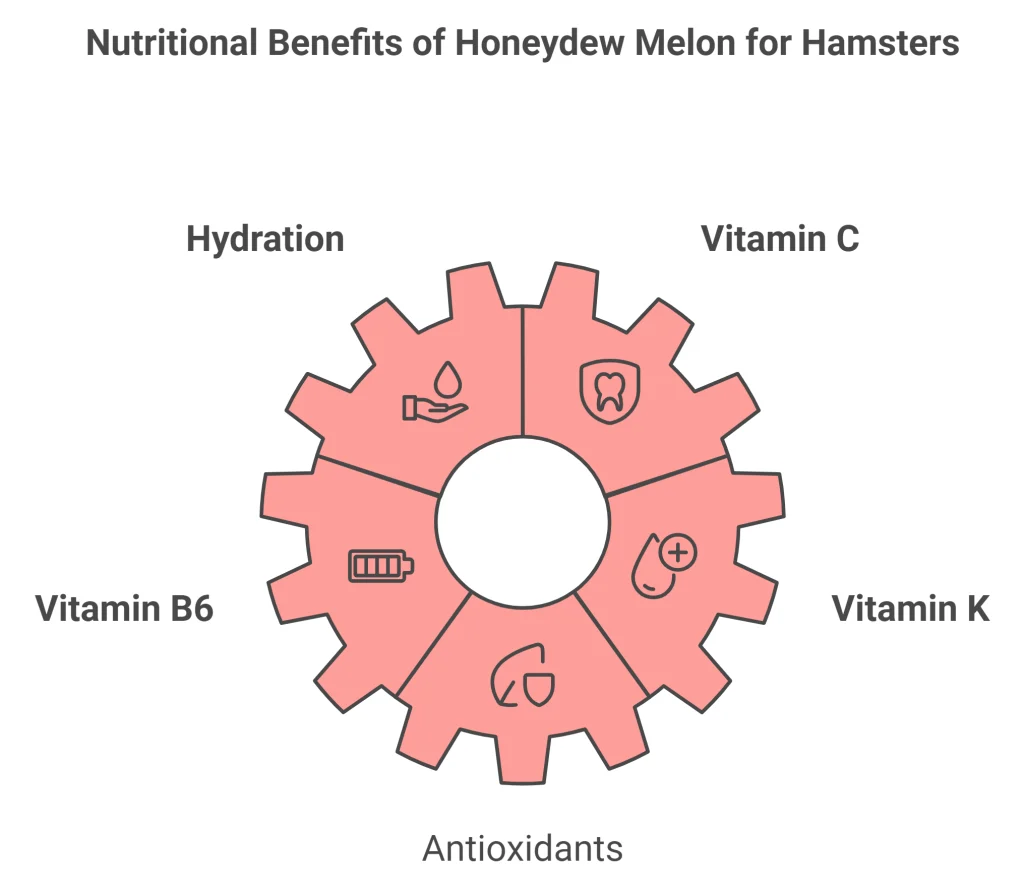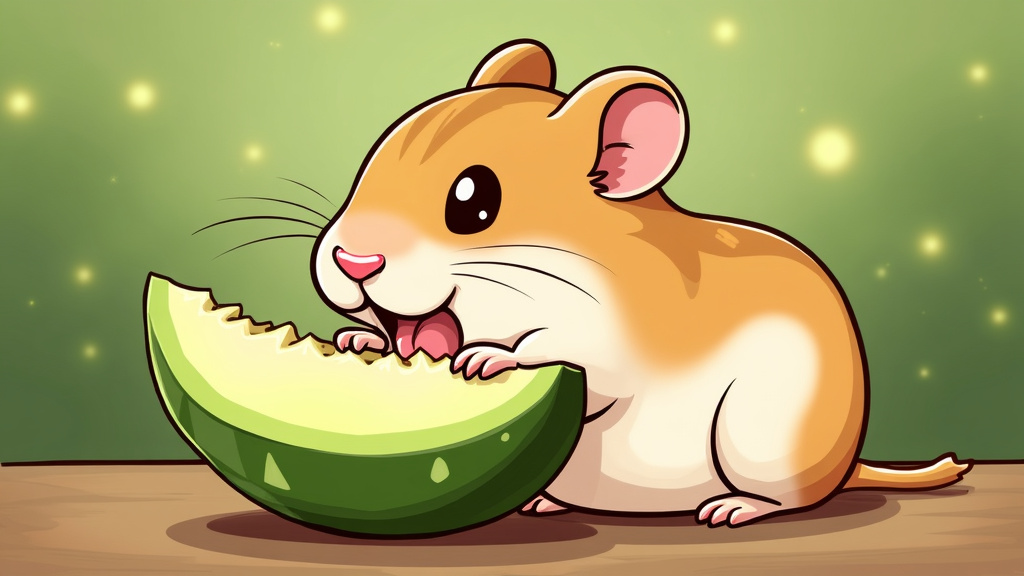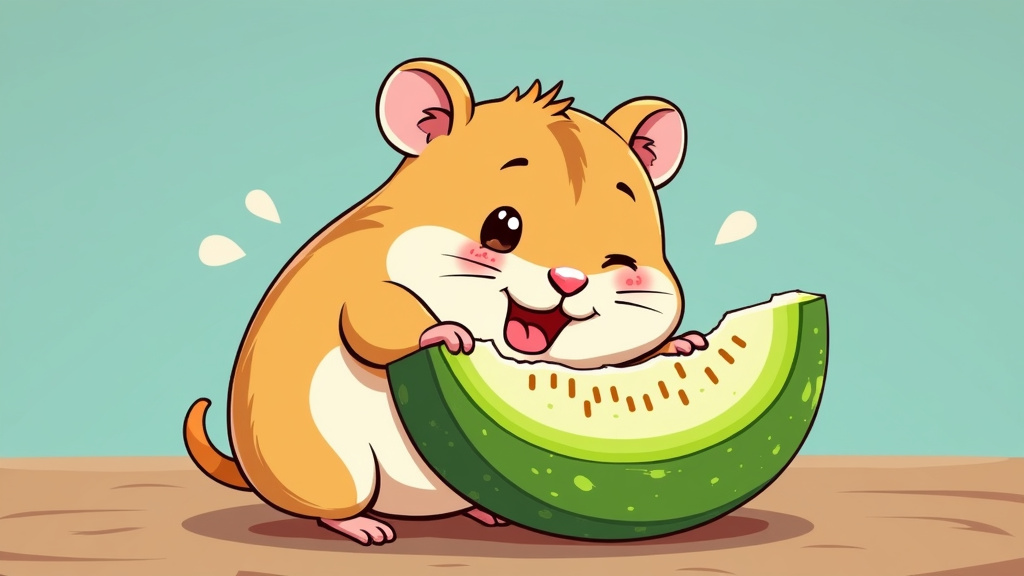Hamsters are curious creatures with diverse dietary needs, and as pet owners, it’s important to know which foods are safe for them. A common question among hamster owners is, Can hamsters eat honeydew melon? The short answer is yes, hamsters can enjoy honeydew melon, but it should be given in moderation. Understanding the nutritional benefits and potential risks of feeding honeydew melon to hamsters is key to keeping them healthy. Not all fruits are suitable for hamsters, and knowing what is safe ensures they receive the proper nutrients without unnecessary risks.
Nutritional Benefits of Honeydew Melon

Honeydew melon offers several nutritional benefits that can be advantageous for hamsters when given in small quantities.
- Hydration: One of the primary benefits of honeydew melon is its high water content—about 90%. This can help keep hamsters hydrated, especially during warm weather when dehydration can be a concern. Offering a small amount of honeydew can supplement their water intake.
- Vitamins: Honeydew melon contains a variety of essential vitamins.
- Vitamin C helps to boost the immune system, which is important for preventing illness in hamsters.
- Vitamin B6 plays a role in maintaining energy levels and proper brain function.
- Vitamin K is important for blood clotting and bone health, supporting overall wellness in hamsters.
- Antioxidants: This fruit is also rich in antioxidants, which are compounds that help to fight free radicals and reduce oxidative stress. Antioxidants support the immune system, helping hamsters stay healthy and resilient to illnesses.
With these benefits, honeydew melon can be a nutritious treat for your hamster when served in appropriate portions.
Risks of Feeding Honeydew Melon to Hamsters
While honeydew melon can offer some nutritional benefits to hamsters, there are also several risks that need to be considered before making it a part of their diet.
- High Sugar Content: Honeydew melon contains natural sugars, and though it may taste delicious to your hamster, too much sugar can lead to serious health issues like obesity and diabetes. Hamsters are particularly sensitive to high sugar diets, which can quickly lead to weight gain and related complications. It is important to limit honeydew to a very small treat offered only occasionally.
- Digestive Sensitivity: Hamsters have delicate digestive systems that may not always respond well to new or rich foods. Introducing honeydew too quickly or in large amounts can lead to gastrointestinal issues like diarrhea or upset stomachs. Moderation is crucial, and any new food should be introduced slowly to monitor your hamster’s reaction.
- Choking Hazards: The rind and seeds of honeydew melon are not safe for hamsters to consume. Both parts can pose a choking risk, especially the seeds, which are small and hard. Always ensure that the flesh of the melon is free of seeds and rind before offering it to your hamster.
- Bacterial Contamination: Pre-cut melon from stores can harbor harmful bacteria like E. coli or Salmonella, which can make your hamster sick. To avoid contamination, it’s best to buy whole melons, wash the rind thoroughly before cutting, and ensure the flesh is fresh and clean before serving.
Guidelines for Feeding Honeydew Melon Safely

If you decide to feed your hamster honeydew melon, following these guidelines will help ensure that it’s done safely and responsibly.
- Selection: Choose fresh, ripe melons with smooth, undamaged rinds. Avoid melons that show signs of over-ripeness, mold, or soft spots, as these could be indicators of spoilage.
- Preparation:
- Wash the melon thoroughly under running water to remove any dirt or potential contaminants from the rind.
- Cut the melon into a small wedge, and make sure to remove all seeds and the outer rind.
- Dice the flesh into small cubes, about 1 cm or less, to make it easy for your hamster to eat and reduce the risk of choking.
- Portion Control: Honeydew melon should be given as an occasional treat. A serving of 1-2 small cubes is sufficient, and this should be offered no more than once or twice a week. Overfeeding can lead to health issues due to the high sugar content.
- Serving: Place the small cubes in your hamster’s dish or mix them with their regular food to encourage natural foraging behavior. Avoid leaving the fruit in their cage for long periods, as it can spoil quickly and attract bacteria.
- Monitor Health: After introducing honeydew melon, observe your hamster for any signs of digestive upset, such as diarrhea or lethargy. If any negative symptoms appear, discontinue the treat and consult a veterinarian. Regular monitoring will help you ensure that honeydew is not causing any health problems for your pet.
Following these guidelines will help you safely offer honeydew melon as a treat, ensuring it complements your hamster’s diet without posing unnecessary risks.
Conclusion
Honeydew melon can be a tasty and refreshing treat for hamsters, but it should only be offered occasionally and with caution. While it provides hydration and beneficial nutrients like vitamins and antioxidants, its high sugar content and potential digestive risks mean it must be fed in moderation. A serving size of 1-2 small cubes, once or twice a week, is enough to allow your hamster to enjoy the fruit without overloading their system.
Safe preparation is essential—always remove the rind and seeds, use fresh and clean melon, and monitor your hamster’s health after introducing this treat. By following these guidelines, you can safely incorporate honeydew melon into your hamster’s diet as an occasional reward.

